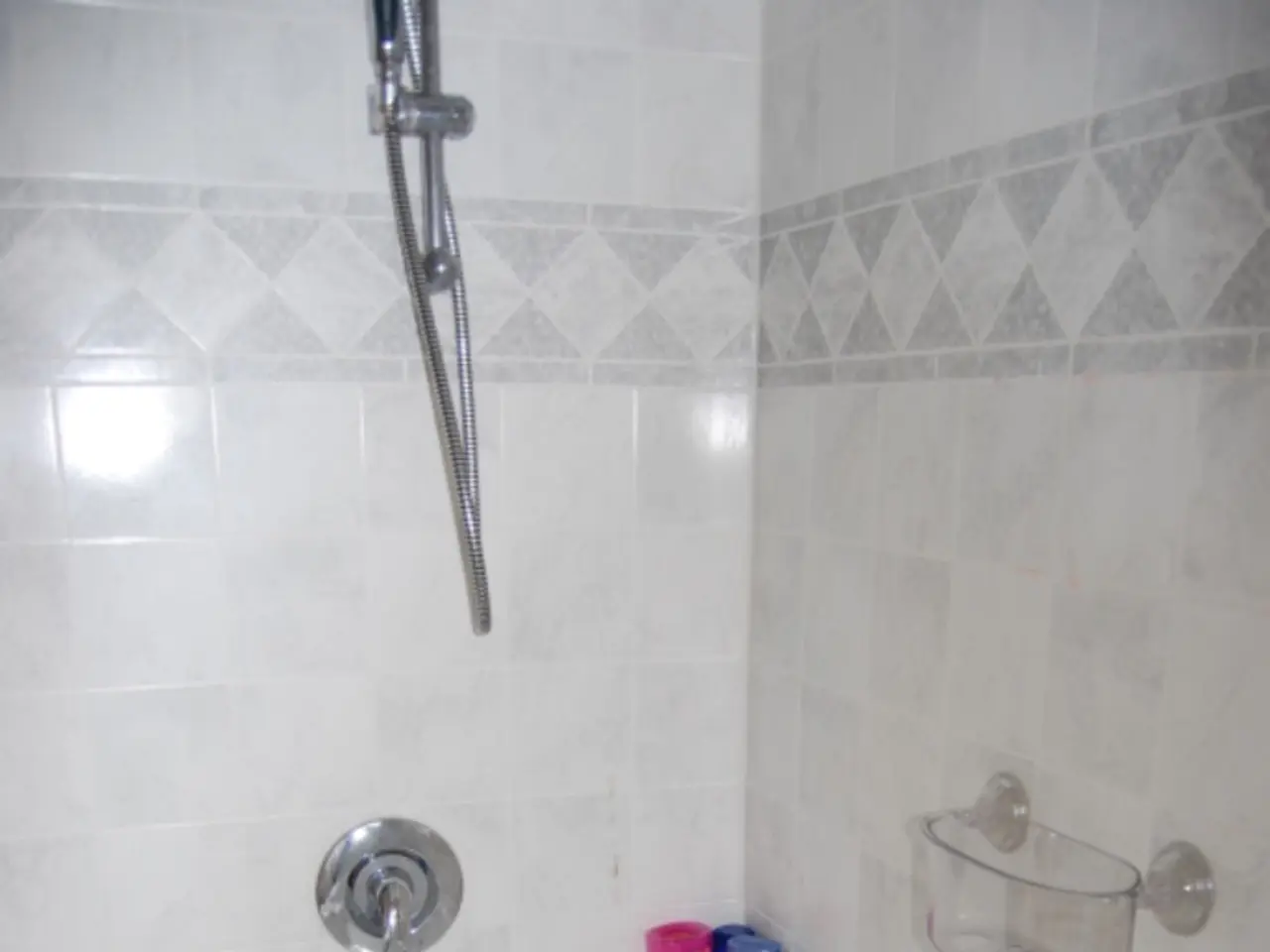Eczema and Warm Water: Suggestions for Bathing and Specialized Soaks
Bathing and showering are essential daily routines for many, but for those with eczema, it's crucial to maintain a gentle approach. The National Eczema Association (NEA) recommends bathing or showering in lukewarm water rather than hot, as hot water can dry out the skin and worsen eczema symptoms.
People with eczema can bathe or shower once per day with mild, soap-free cleansers suitable for sensitive skin. It's important to wash the skin gently, rinse off cleansers, shampoo, and other products, and pat the skin dry with a towel before applying a moisturizer or emollient to prevent the skin from drying out.
Bathing and showering in lukewarm water can help hydrate the skin. Essential oils can be added to bath water to help keep the skin hydrated, but it's important to choose products without fragrances or foaming agents, and to do a patch test before using a new essential oil.
Colloidal oatmeal baths can relieve skin inflammation, help heal cuts and burns, soothe dry or itchy skin, and relieve itching due to eczema or psoriasis. A 2015 study suggests that colloidal oatmeal baths may help reduce symptoms of asthma or seasonal allergies.
Bleach baths can help cleanse the skin and may improve the severity of eczema symptoms for some people, but they may not work for everyone. When using a bleach bath, people should use regular strength bleach of around 6%, measure out the correct amount of bleach, soak for 5 to 10 minutes, limit the frequency to no more than twice a week, and moisturize the skin after the bath.
Everyone's eczema reacts differently to different stimuli, so some people with the condition may prefer baths while others prefer showers. It's important to choose the option that causes the least skin irritation. Showering allows people to avoid prolonged contact with irritants that may worsen symptoms.
Eczema is an inflammatory skin condition that causes dry, itchy, and scaly patches. In addition to bathing habits and water temperature, eczema can be triggered by a wide range of external factors including environmental conditions, chemical irritants, allergens, fabrics, emotional stress, and skin infections.
Dry skin, often caused by cold weather, aging, or certain medications, can worsen eczema flare-ups. Irritants found in everyday products such as dish soap, household cleansers, laundry detergents, perfumes, shampoos, and skincare products can also trigger eczema. Certain fabrics like wool and polyester in clothing or bedding can irritate the skin.
Environmental factors such as sweating, changes in humidity or temperature, cold dry air, indoor heating, and air conditioning that dry out or irritate the skin can also trigger eczema. Exposure to chemicals including acids, alkalis, solvents, hair dyes, weed killers, cement, fabric softeners, and harsh detergents that cause irritant contact dermatitis can trigger eczema.
Other triggers such as insect bites, bacterial or fungal skin infections, poor blood flow, sensitivity to metals and formaldehyde, and viral illnesses can also trigger eczema. It's important for people with eczema to identify and minimize exposure to these diverse triggers to manage their condition effectively.
If the rash contracts an infection, persists even after using over-the-counter medications, is accompanied by other symptoms such as fever, difficulty breathing, or joint pain, or if they are experiencing mental health challenges, people with eczema should consult a healthcare professional.
The NEA also recommends adding one-quarter cup of baking soda to a bath or applying it directly to the skin as a paste to relieve itchy skin. Some factors that can worsen eczema include irritants such as pollen, dust mites, and mold, extremes of temperature, sweating, stress and anxiety, food allergies or sensitivities, certain chemicals, respiratory viruses like influenza, animals, rough fabrics, fumes from vehicles, wildfires, and certain factories.
Managing eczema often requires a holistic approach, taking into account both bathing habits and the wide range of external factors that can trigger the condition. By identifying and minimizing exposure to these triggers, people with eczema can effectively manage their symptoms and maintain comfortable, healthy skin.
[1] National Eczema Association. (n.d.). Eczema Triggers. Retrieved from https://nationaleczema.org/eczema/triggers/ [2] American Academy of Dermatology. (n.d.). Eczema. Retrieved from https://www.aad.org/public/diseases/eczema [3] Mayo Clinic. (2021, March 11). Eczema. Retrieved from https://www.mayoclinic.org/diseases-conditions/eczema/symptoms-causes/syc-20366474 [4] Cleveland Clinic. (2020, August 27). Eczema (Atopic Dermatitis). Retrieved from https://my.clevelandclinic.org/health/diseases/16746-eczema [5] Skin Care Physicians. (n.d.). Eczema. Retrieved from https://www.skincarephysicians.com/eczema/
- To maintain healthy skin, people with eczema should consider adding colloidal oatmeal to their bath water, as it may help relieve skin inflammation, heal cuts and burns, soothe dry or itchy skin, and alleviate itching due to eczema or psoriasis.
- When cleaning supplies are necessary, it's essential to choose products formulated for sensitive skin and avoid those containing harsh chemicals that can trigger eczema.
- Bleach baths may improve the severity of eczema symptoms for some individuals, but the frequency should be limited to no more than twice a week, and it's crucial to follow proper guidelines when using bleach.
- In addition to using gentle, fragrance-free cleansers, people with eczema should be aware of environmental triggers that can exacerbate their condition, such as extremes of temperature, sweating, stress, and exposure to chemical irritants.
- A holistic approach to managing eczema involves identifying and minimizing exposure to various triggers, including certain fabrics, pets, food allergies or sensitivities, and airborne pollutants, in order to maintain comfortable, healthy skin.




